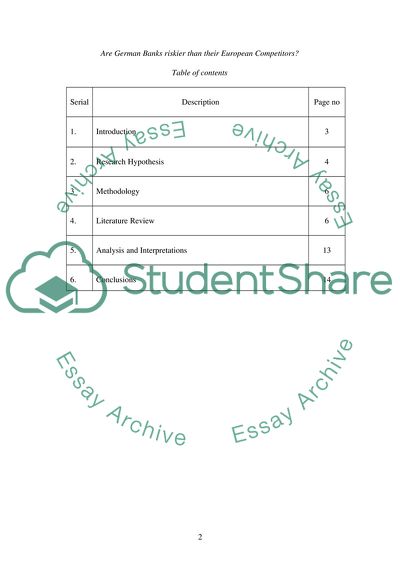Cite this document
(Are the German Banks Riskier than the European Competitors Coursework, n.d.)
Are the German Banks Riskier than the European Competitors Coursework. https://studentshare.org/finance-accounting/1730444-are-the-german-banks-riskier-than-the-european-competitors
Are the German Banks Riskier than the European Competitors Coursework. https://studentshare.org/finance-accounting/1730444-are-the-german-banks-riskier-than-the-european-competitors
(Are the German Banks Riskier Than the European Competitors Coursework)
Are the German Banks Riskier Than the European Competitors Coursework. https://studentshare.org/finance-accounting/1730444-are-the-german-banks-riskier-than-the-european-competitors.
Are the German Banks Riskier Than the European Competitors Coursework. https://studentshare.org/finance-accounting/1730444-are-the-german-banks-riskier-than-the-european-competitors.
“Are the German Banks Riskier Than the European Competitors Coursework”. https://studentshare.org/finance-accounting/1730444-are-the-german-banks-riskier-than-the-european-competitors.


